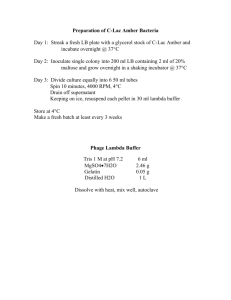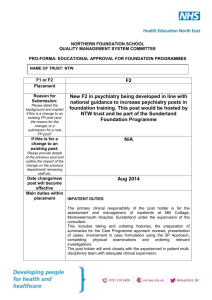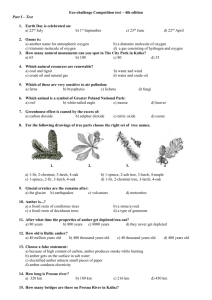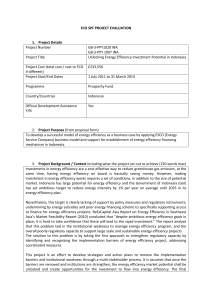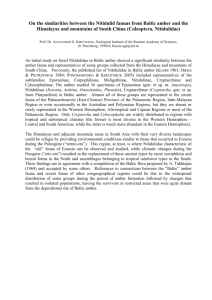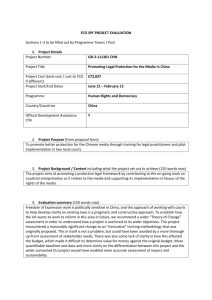Brown - Adult - F1 - Sunderland - Northumberland, Tyne and Wear
advertisement
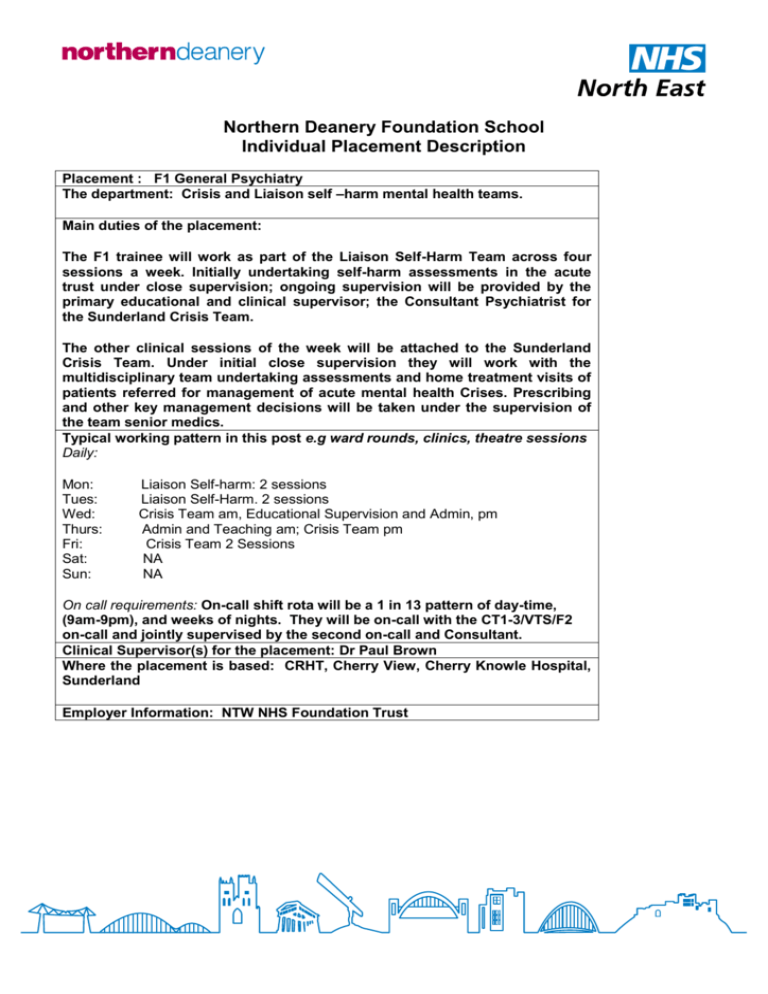
Northern Deanery Foundation School Individual Placement Description Placement : F1 General Psychiatry The department: Crisis and Liaison self –harm mental health teams. Main duties of the placement: The F1 trainee will work as part of the Liaison Self-Harm Team across four sessions a week. Initially undertaking self-harm assessments in the acute trust under close supervision; ongoing supervision will be provided by the primary educational and clinical supervisor; the Consultant Psychiatrist for the Sunderland Crisis Team. The other clinical sessions of the week will be attached to the Sunderland Crisis Team. Under initial close supervision they will work with the multidisciplinary team undertaking assessments and home treatment visits of patients referred for management of acute mental health Crises. Prescribing and other key management decisions will be taken under the supervision of the team senior medics. Typical working pattern in this post e.g ward rounds, clinics, theatre sessions Daily: Mon: Tues: Wed: Thurs: Fri: Sat: Sun: Liaison Self-harm: 2 sessions Liaison Self-Harm. 2 sessions Crisis Team am, Educational Supervision and Admin, pm Admin and Teaching am; Crisis Team pm Crisis Team 2 Sessions NA NA On call requirements: On-call shift rota will be a 1 in 13 pattern of day-time, (9am-9pm), and weeks of nights. They will be on-call with the CT1-3/VTS/F2 on-call and jointly supervised by the second on-call and Consultant. Clinical Supervisor(s) for the placement: Dr Paul Brown Where the placement is based: CRHT, Cherry View, Cherry Knowle Hospital, Sunderland Employer Information: NTW NHS Foundation Trust Northern Deanery Foundation School Foundation Placement Competence Matrix POST : F1 General Psychiatry _________________________________________________ The following table gives an indication to what extent the following competence areas of the National Foundation Curriculum can be met in this post. KEY Red: Not at all Amber: To some extent/limited opportunities Green: To a great extent/ample opportunities Curriculum competences (and any additional competences such as audit etc) expected to be achieved: Section Outcome Professionalism Behaviour in the workplace Health and handling stress and fatigue Time management and continuity of care Eliciting a history (Mental State) Examination Diagnosis and clinical decision-making Safe prescribing Medical record keeping and correspondence Safe use of medical devices Promptly assesses the acutely ill or collapsed patient Identifies and responds to acutely abnormal physiology Where appropriate, delivers a fluid challenge safely to an acutely ill patient Reassesses ill patients appropriately after starting treatment Undertakes a further patient review to establish a differential diagnosis Obtains an arterial blood gas sample safely, interprets results correctly Manages patients with impaired consciousness, including convulsions Uses common analgesic drugs safely and effectively Understands and applies the principles of managing a patient with acute mental disorder including self harm Ensures safe continuing care of patients on handover between shifts, on call staff or with Good clinical care Recognition and management of the acutely ill patient Expect to achieve Green: Green: Green: Green: Green: Amber Amber Green: Red: Red: Red: Red: Red: Green: Red: Red: Red: Green: Green: Section Resuscitation Discharge and planning for chronic disease management Relationship with patients and communication skills Patient safety within clinical governance Infection control Nutritional care Health promotion, patient education and public health Ethical and legal issues Maintaining good medical practice Teaching and Training Working with colleagues Other (non curricula) Outcome Expect to achieve ‘hospital at night‘ team by meticulous attention to detail and reflection on performance Resuscitation Discusses Do Not Attempt Resuscitation (DNAR) orders/advance directives appropriately Discharge planning Amber Planning for chronic disease management Within a consultation Amber Green: Breaking bad news Treats the patient as the centre of care Makes patient safety a priority in own clinical practice Promotes patient safety through good teamworking Understands the principles of quality and safety improvement Complaints Infection control Nutritional care Educating patients Environmental, biological and lifestyle risk factors Smoking Alcohol Epidemiology and screening Medical ethical principles and confidentiality Valid consent Legal framework of medical practice Relevance of outside bodies Lifelong learning Research, evidence, guidelines and care protocols Audit Teaching and training Communication with colleagues and teamwork for patient safety Interface with different specialties and with other professionals Green: Green: Green: Amber Green: Green: Amber Amber Red: Green: Green: Amber Green: Amber Green: Green: Green: Green: Green: Green: Amber Amber Green: Green: Trainer CV: Dr Paul Brown; Consultant Psychiatrist Sunderland Crisis Team. Current Role: I am the lead Consultant for the Sunderland Crisis Mental Health Service for the whole Sunderland population, working alongside one Specialty Grade Doctor and a large team of senior psychiatric nurses who operate the service 24/7. I am also currently Acting Lead Consultant for our organisation’s Crisis, Liaison Psychiatry, ECT and Acute Day Hospital services in the South of Tyne Region. I have been Sunderland College Tutor for nearly one year and also currently Educationally Supervise one the inpatient Core Psychiatry Trainees, who is currently clinically supervised by a Locum Consultant. Educational Experience: I have the Post Graduate Certificate of Clinical Education from Newcastle University and have provided a wide range of teaching sessions/ experiences to Undergraduates, Trainees from other specialties, non-medical specialists as well as Psychiatry trainees. I am currently on the National Clinical Leadership Fellowship Course; organised and run by the National Leadership Council/ Department of Health with Educational input from the University of Manchester and the Kings Fund. I have undertaken specific training on: Educational Supervision, In-training assessments, the ARCP process and Managing Doctors in Difficulty as well as a range of other relevant courses. Most of these courses I have attended are organised by the Northern Deanery.
